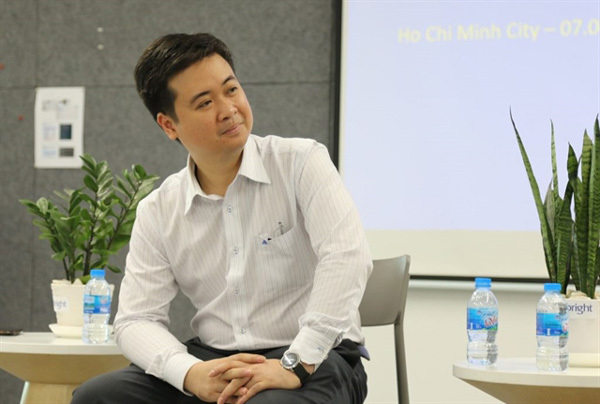Human-centered AI has great potential in Vietnam
2019/10/18
Human - centered artificial intelligence (AI) is an approach that aims not to replace people but to enhance human life,Tran Minh Triet, deputy rector of HCM City’s University of Science, said at a recent conference in HCM City.

Human - centered artificial intelligence (AI) is an approach that aims not to replace people but
to enhance human life, Tran Minh Triet, deputy rector of HCM City’s University of Science,
said at a recent conference in HCM City.
The AI field is expected to see major breakthroughs in the next 10 years, he said, adding that the Government aims to make AI a top priority in its growth policies.
Among the most important tasks are improving training quality in higher education, building Industry 4.0-tech training institutes, and encouraging technological application, business reform, and investment in science-technology research.
“I think that Vietnam has people capable of participating in research, development and AI application for human life,” Triet said. "However, we have not really applied the results from these fields to solve practical problems to serve the life of people."
"We do not have policies and equipment to collect, store and share big data for research and construction of intelligent systems," he added.
Another important challenge is the lack of experts who know how to apply machine learning and use virtual reality for practical purposes, Triet said.
The Government, enterprises, scientists and investors should work together in researching, developing and applying AI, and universities should create an environment for experts to take part in AI projects based on the actual needs of businesses, investors and the city's problems, he added.
In recent years, the innovation network in the country, however, has been able to attract more technological experts who can help the Government realise its goal of putting AI at the core of its development plans.
The Ministry of Planning and Investment plans to seek more Vietnamese AI experts from outside the country and establish a global fund to train high-quality human resources for the industry, according to Triet.
Ta Hai Tung, head of the Information Technology Institute at the Hanoi University of Science and Technology, said the Vietnamese AI community has potential to grow quickly because overseas Vietnamese experts in the technology sector began returning to Vietnam about three years ago to develop AI and help the community interact with international counterparts.
The Vietnamese AI community includes foreign investors, associations, and specialists at State agencies and businesses.
An alliance of AI communities in Vietnam that debuted last month includes the Digital Transformation community, Machine Learning community, Google Developer community and Business Intelligence community.
The advances that do not stop at the laboratory but should be applied in practice, serving people with a human-centered spirit, according to Tung.
In Vietnam, AI is being used in a number of sectors including healthcare, education, agriculture, transport and e-commerce.
The IT-technology group FPT Corporation has used AI for smart traffic systems in HCM City.
The Viettel Military Industry and Telecoms Group was the first business in Vietnam to use AI in endoscopy, which helps doctors identify, localise and assess damage in the digestive system.
"AI reduces diagnosis time by five times compared to traditional methods with an accuracy of up to 90 per cent,” said Nguyen Quang Vinh of Viettel Business Solutions Corporation.
Viettel has also come up with a solution to help businesses fight cyberattacks and increase internal security.
